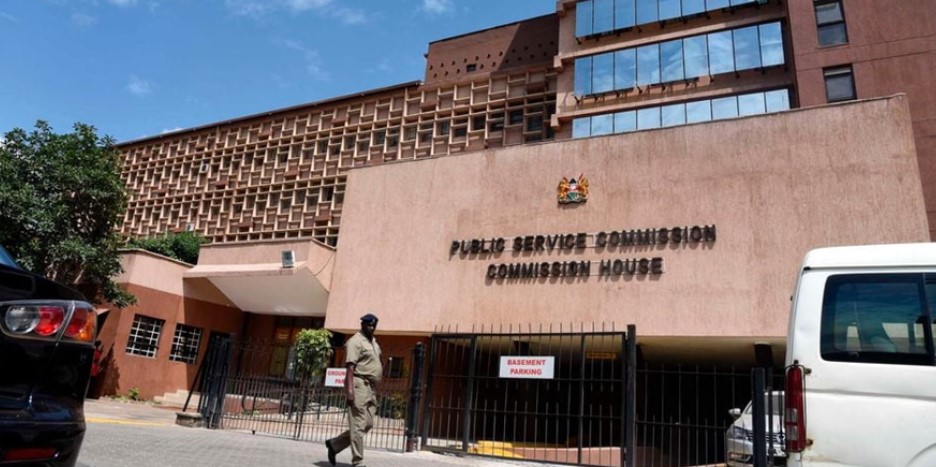New bill on fundraising in Senate draws mixed reactions over its regulatory provisions

The Clerk goes further to explain that the Act that the new bill seeks to replace excludes from its purview charitable and religious purposes, yet these form a large component of fundraising appeals.
A bill aimed at regulating all types of public fundraising has sparked criticism for its proposals, which include rigorous measures for raising donations for various reasons.
The Public Fundraising Appeals Bill 2024 was read for the first time in the Senate on 1, August 2024 and thereafter stood committed to the Standing Committee on Labour and Social Welfare for consideration.
More To Read
- Mudavadi urges shift from harambees to cooperatives to shield economy from political shocks
- Senators reject Ruto Bill to regulate harambees
- New Bill proposes stricter regulations on politicians' harambee participation, curb corruption
- Koskei directs service commissions to monitor compliance with Harambee ban
According to a notice placed in one of the leading dailies by Clerk of the Senate Jeremiah Nyegenye, the principal object of the bill is to provide a framework for the regulation of the conduct of public fundraising appeals or harambees.
"The bill seeks to replace the Public Collection Act (Cap.106) whose architecture does not fully comply with the Consultation of Kenya, 2010. The Act is not sufficiently robust in addressing corruption tendencies that are sometimes associated with public fundraising appeals," wrote Nyegenye.
The Clerk goes further to explain that the Act that the new bill seeks to replace excludes from its purview charitable and religious purposes, yet these form a large component of fundraising appeals.
"The bill therefore seeks to promote transparency and accountability in the carrying out of fundraising appeals, to provide for persons who may conduct fundraising appeals and to regulate the participation of State and public officers in fundraising appeals," asserts Nyegenye.
According to Bunge La Mayut- Kenya in their X handle @BungeLaMayut, Kenyans will require permits to conduct public fundraising.
"If this bill passes, YOU WILL REQUIRE A PERMIT TO DO A HARAMBEE. Utajisomea entire bill hapa chini but kwa mafupi, we are saying No because the government should focus on making things work so we don't need harambees not making it hard to do them," claims @BungeLaMayut.
Save Oloolua Forest who tweets on X as @gitweeta, said, "Public Fundraising Appeal Bill is before the Senate. They saw the success Hanifa had and said they had to stop Kenyans from helping Kenyans. "Medical bills? Huna permit? Kufa haraka."
President William Ruto last month announced that measures barring State and public officers from engaging in harambees were now ready following the publishing of the bill.
"The Attorney General is hereby directed to prepare and submit legislation to this effect and develop a mechanism for structured and transparent contribution for public, charitable and philanthropic purposes," Ruto said.
On July 10, Service Commissions and state officeholders were mandated to monitor compliance with the recent presidential directive banning state officers and public servants from participating in harambees.
In a memo dated July 7 and marked confidential, Head of Public Service Felix Koskei reiterated that whilst the spirit of harambees continues to propel its noble ideal of nation-building, the same has come into disrepute through perceptions of corruption and abuse of office.
"In that regard, it is notified that His Excellency the President has directed that 'No State officer and public servant shall participate in public collections (Harambees) henceforth," he said.
"Accordingly, all public officers are required to adhere to the highest standards of ethical conduct and to secure their strict compliance with the directive as well as compliance by all officers under their supervision, direction, or control."
Koskei said this is in upholding the national principles and values of governance as enshrined in Article 10 of the Constitution and various laws, including the Public Officers Ethics Act, the Public Service Commission Code of Conduct and Ethics, and the Public Collections Act.
The memo was copied to all state officers including clerks of assemblies, governors, AG, cabinet secretaries and PSs, DPP, auditor general, controller of budget, chief registrar of Judiciary and chairpersons and CEOs of state corporations and constitutional commissions.
Top Stories Today














































